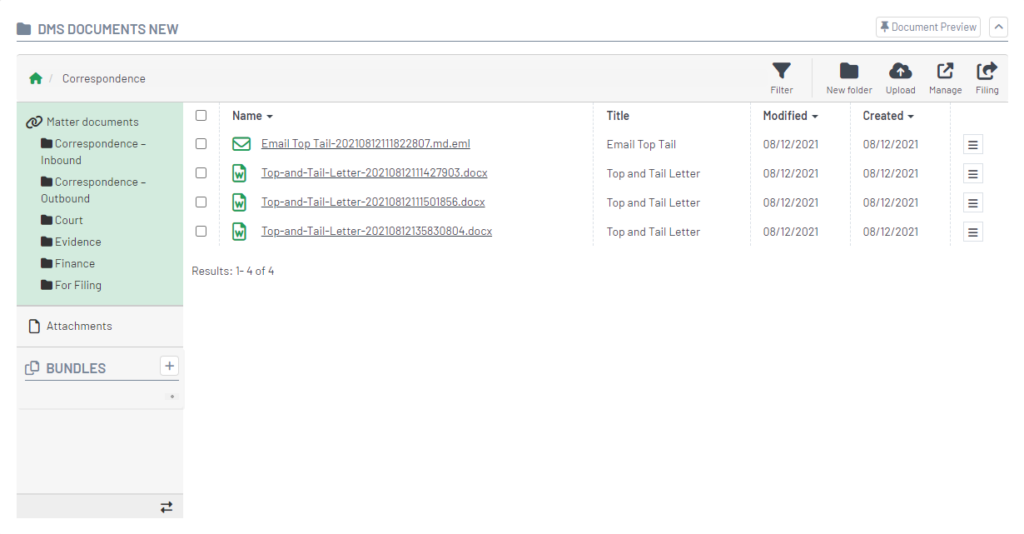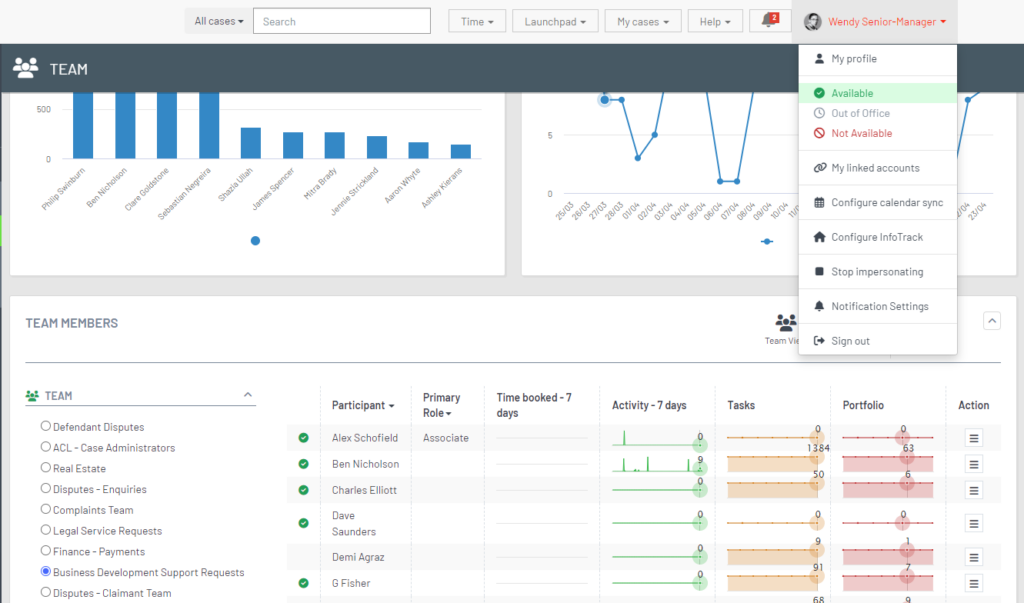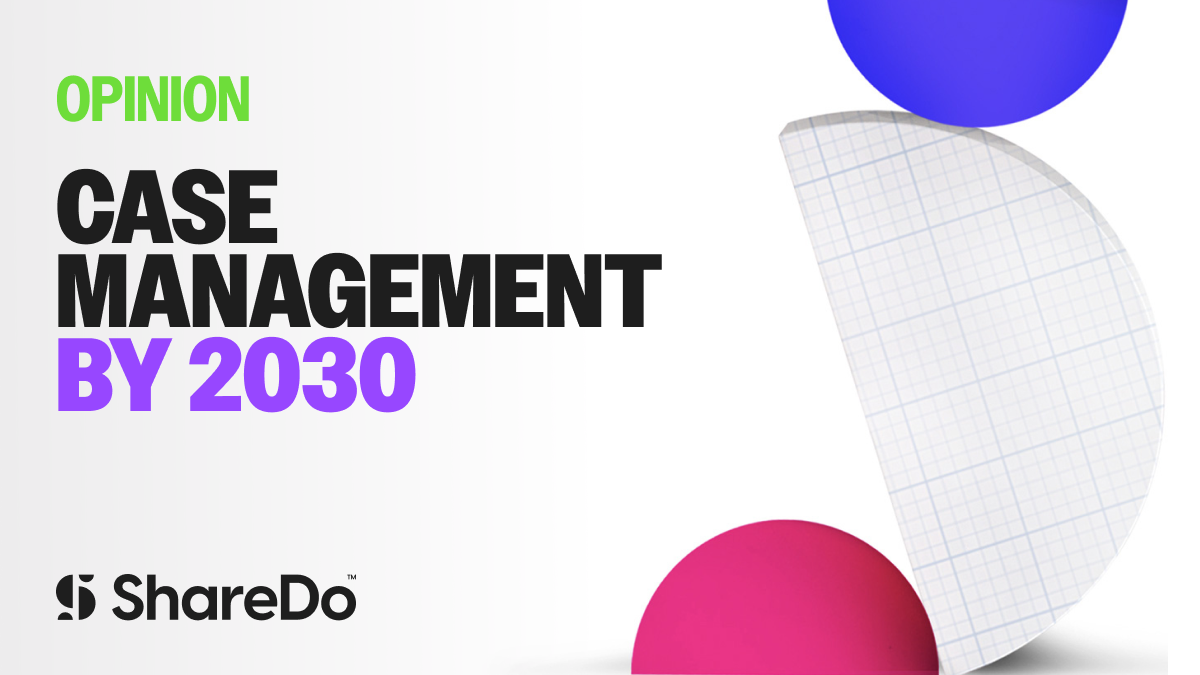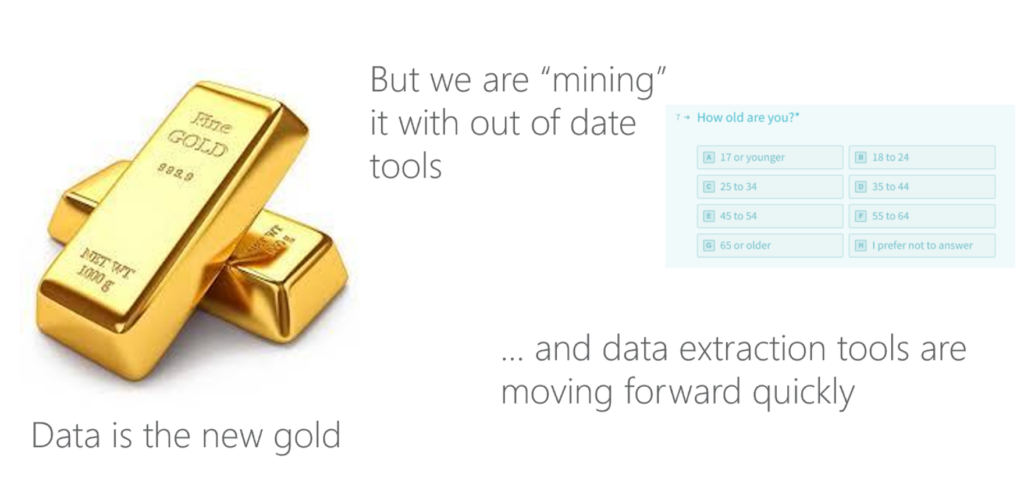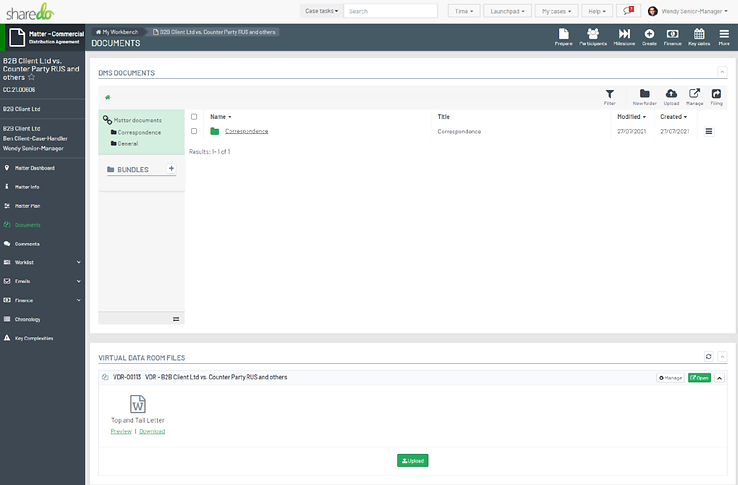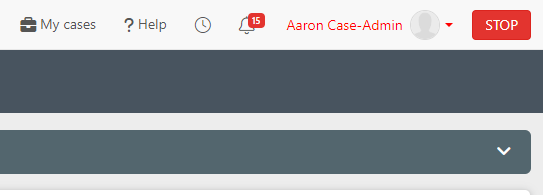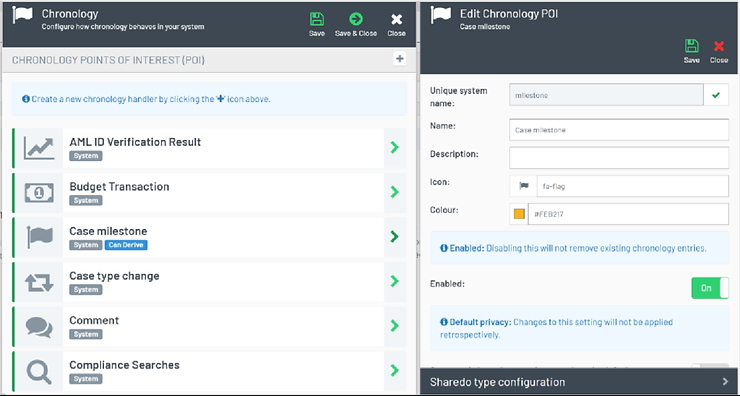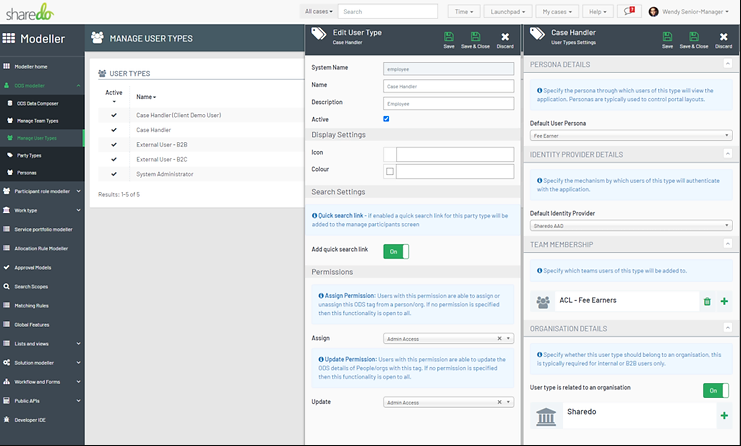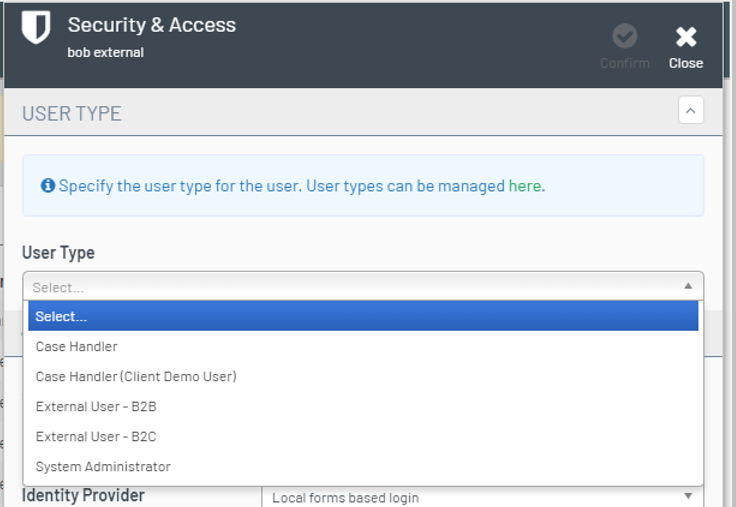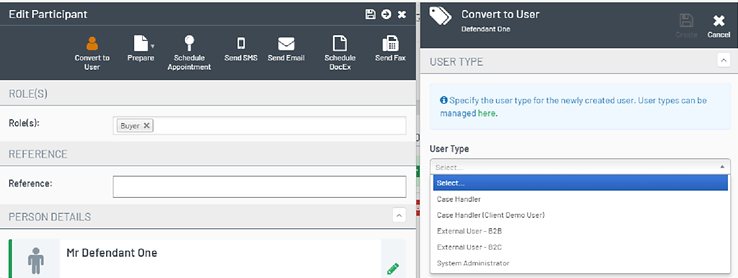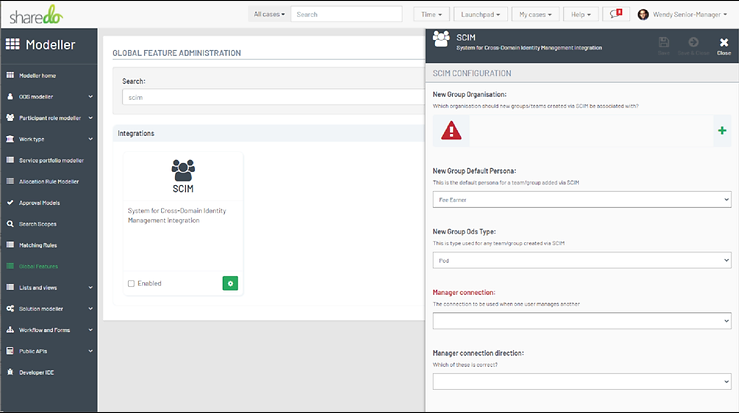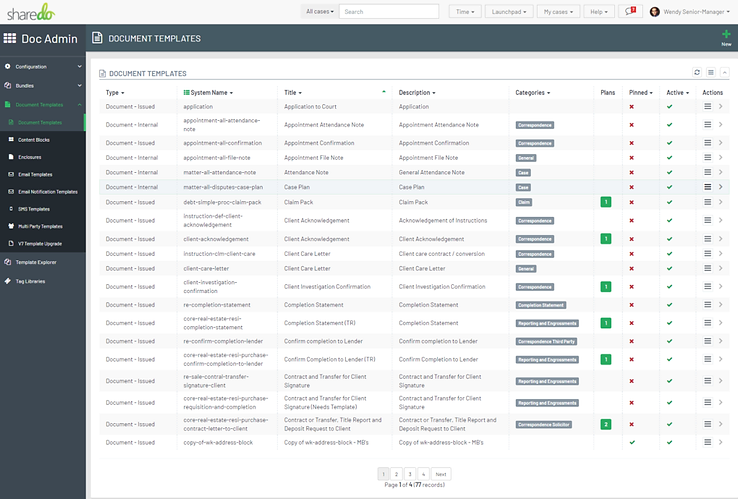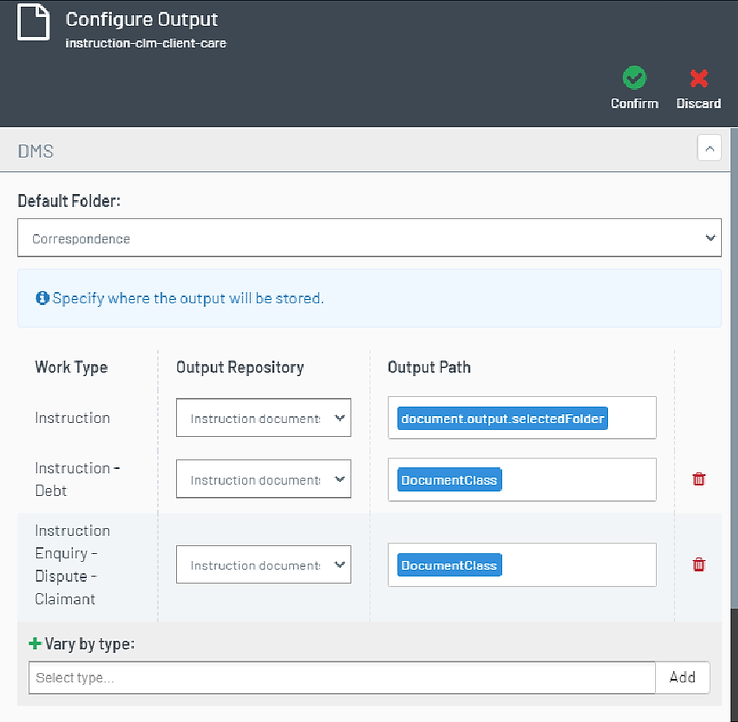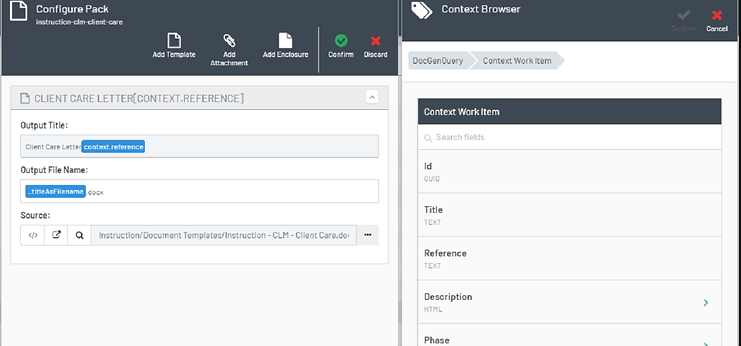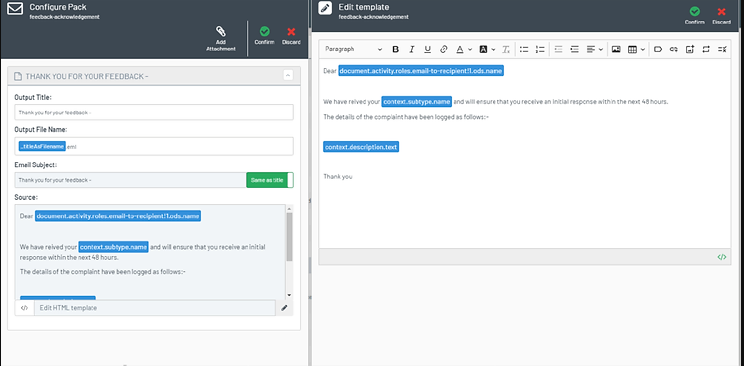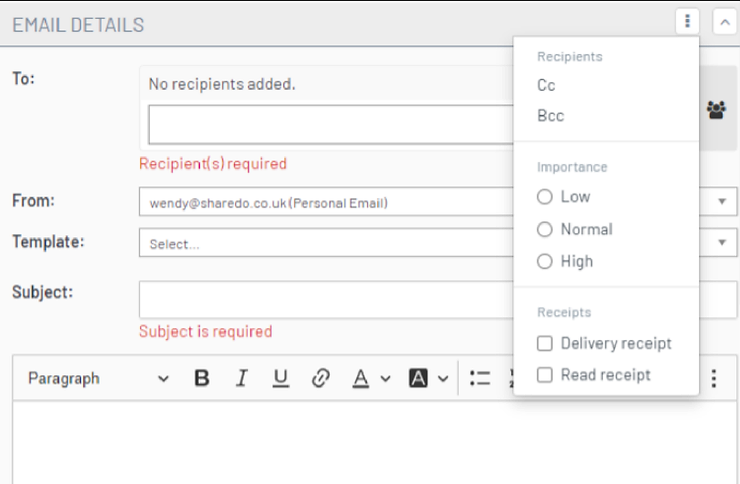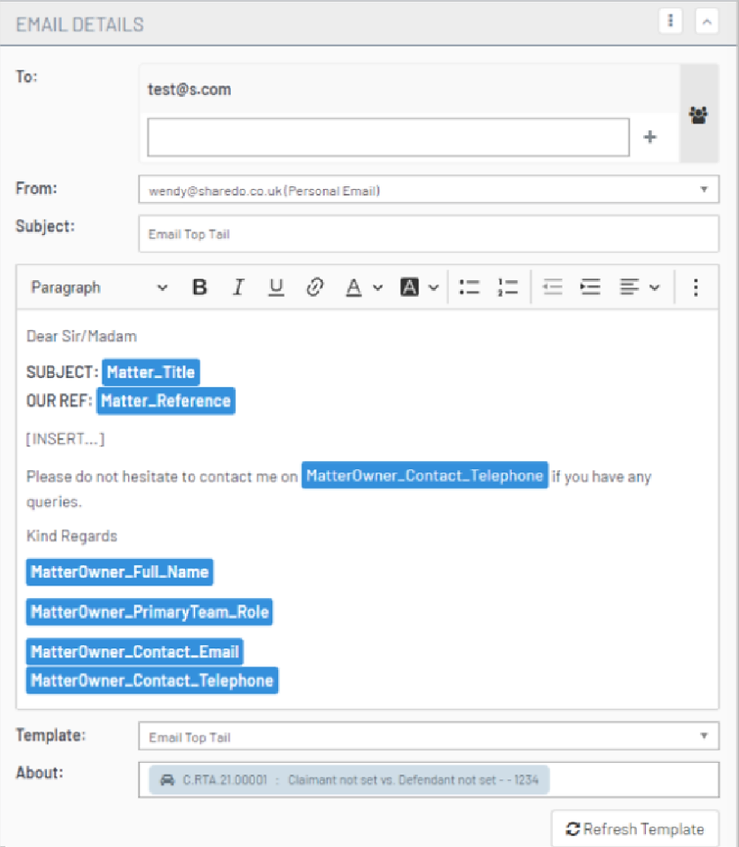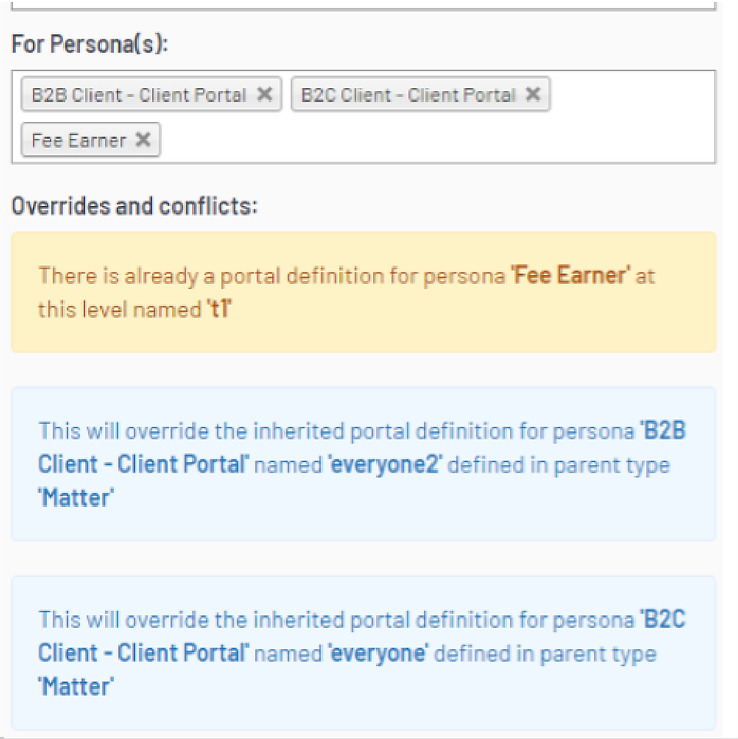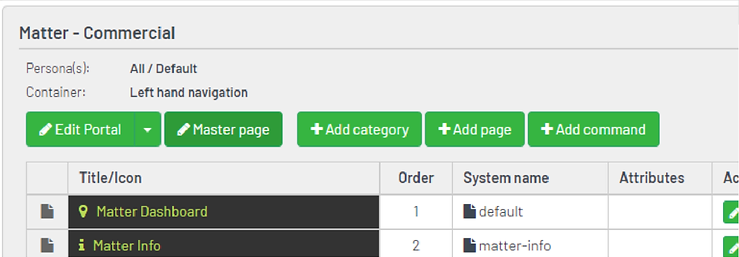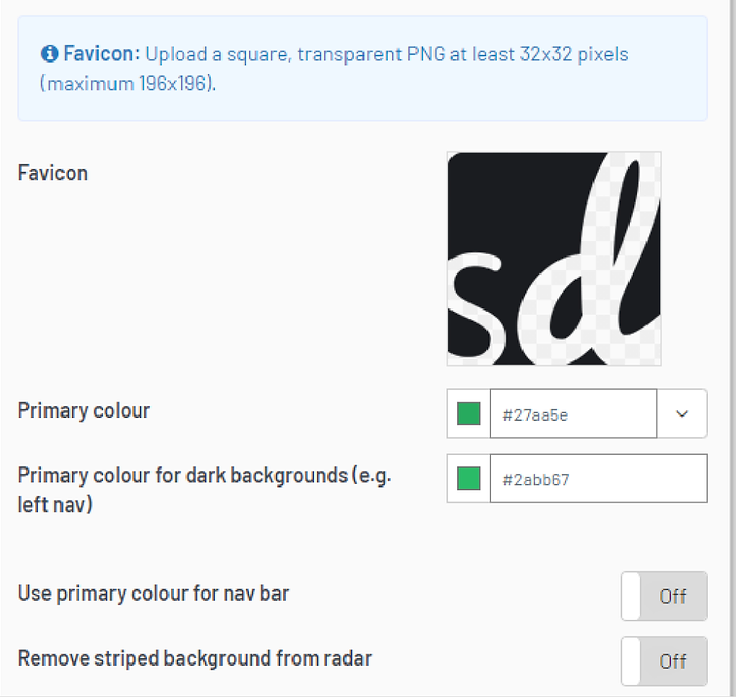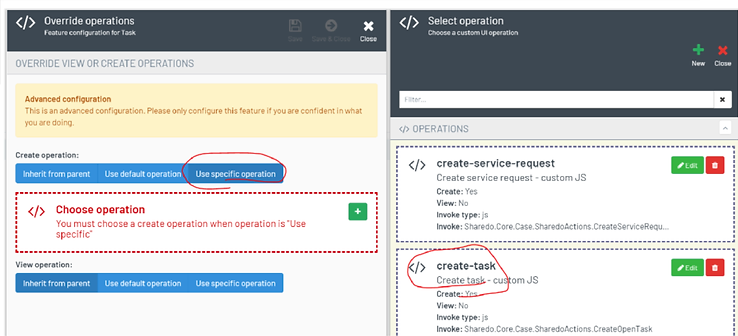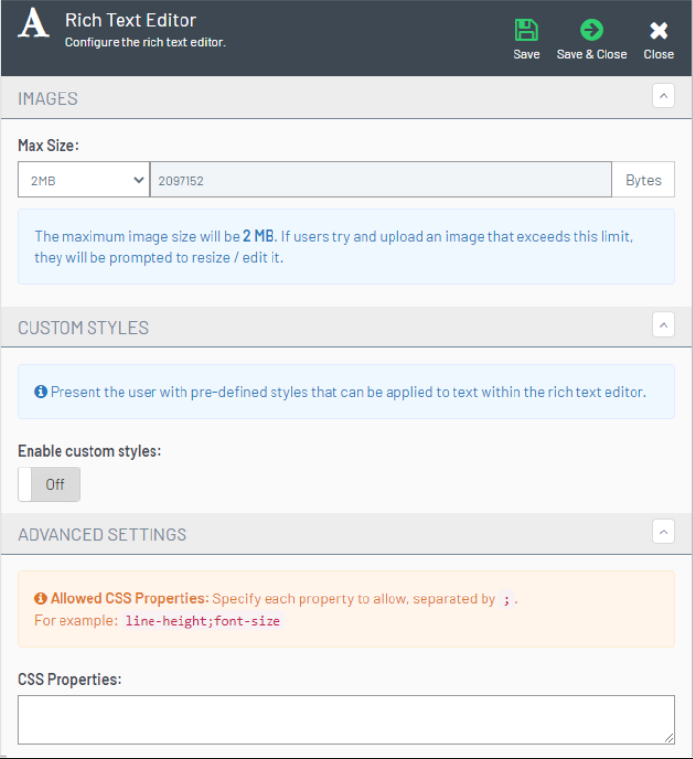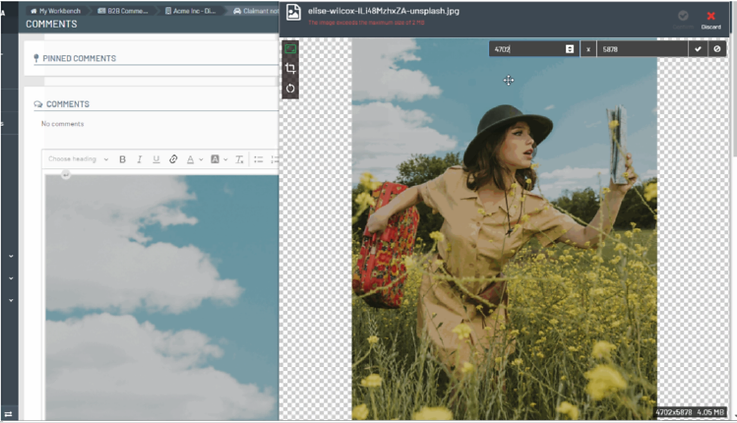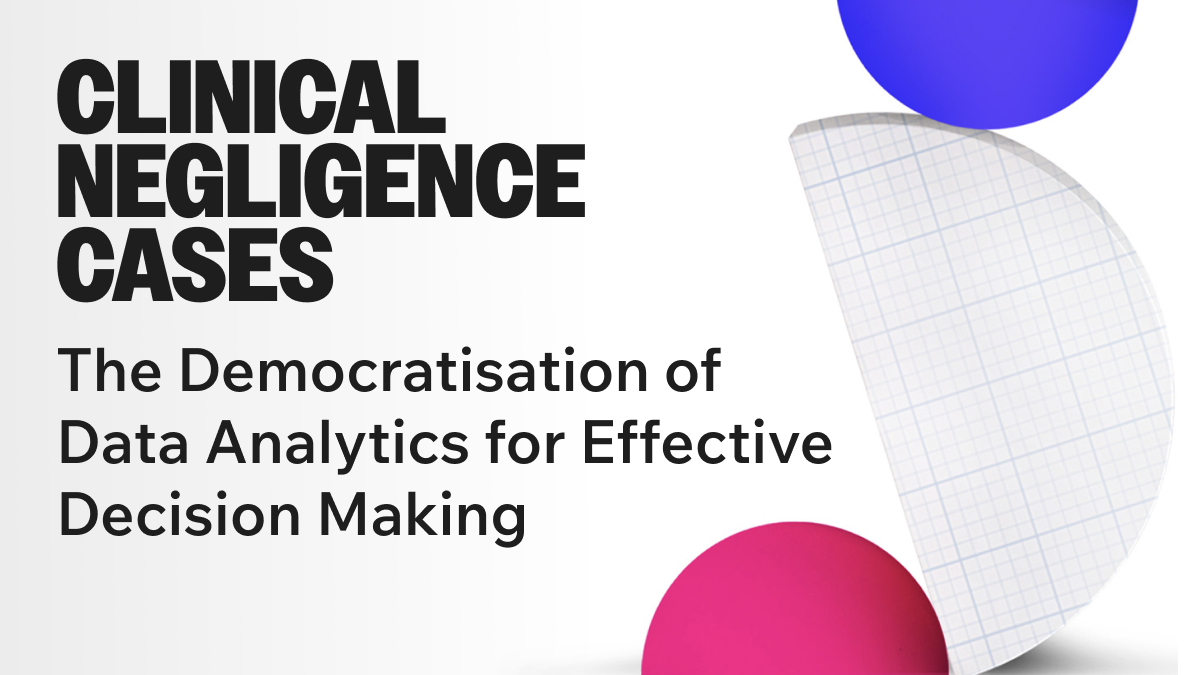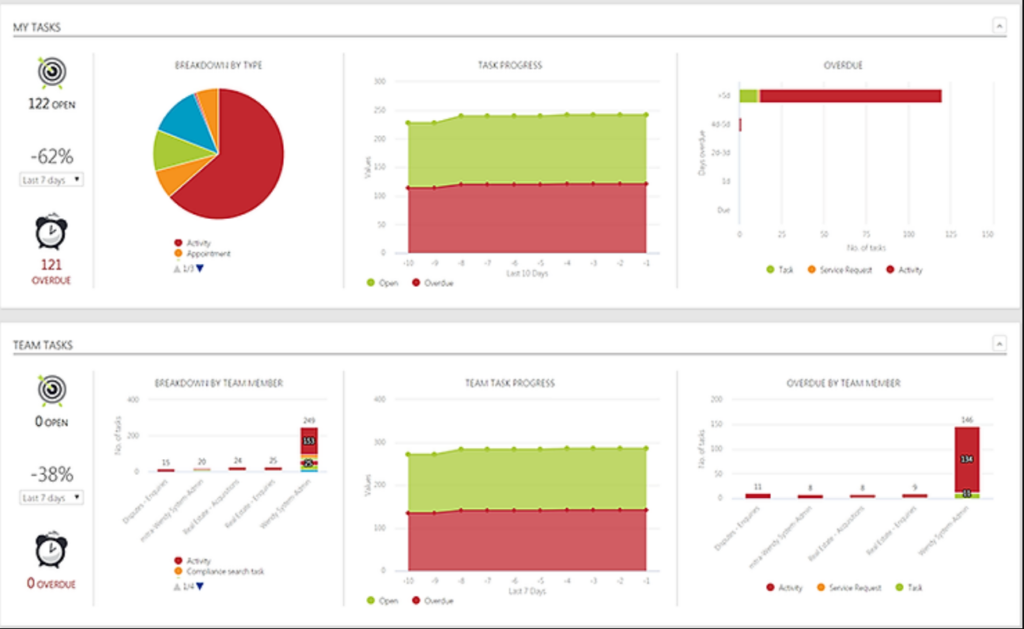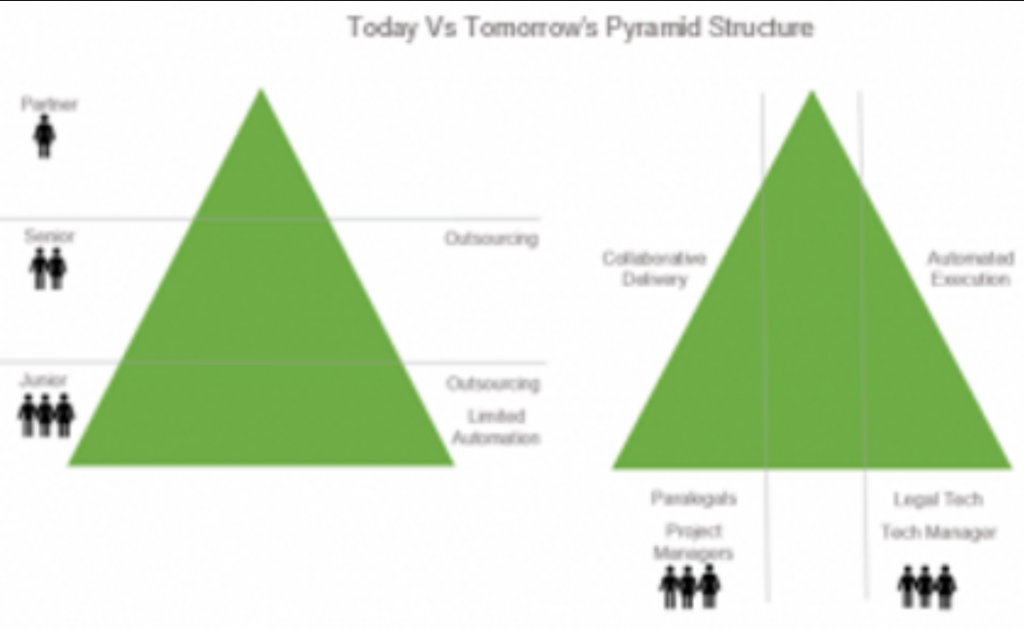Top 7 Critical Success Factors for Implementing Case and Matter Management Successfully
sharedo
on
April 19, 2022
When ‘done right’, your case or matter management system (CMS) quickly becomes a critical part of your business. As a fundamental cornerstone, it can deliver process improvement to all practice areas and provide outstanding operational insight across your business.
However, despite your very best of intentions, if your CMS is poorly designed or badly implemented for you, it can do more harm than good. It could either be improperly used, resulting in costly and time-consuming errors that frustrate your clients and employees, or it won’t be used sufficiently to deliver a strong return on investment.
We’ve spent the last five years building a reputation for personalising and implementing first rate case management systems for legal organisations across the UK and beyond. While we’re always learning, here’s the top critical success factors to get right to ensure you experience a successful CMS implementation.
1. Manage change effectively
True and lasting change has historically been very difficult to achieve in the legal Industry. Natural resistance tends to be high and adoption rates being very low. And that’s before we factor in change management as a discipline being at its infancy within many firms. With Change Management being cited as the single most important factor for a project’s success, its importance cannot be under-estimated.
Effective change management requires more than just effective communications or an analytical focus on detailed requirements gathering. Instead, change management should be considered as its own specialist discipline. Its lens should be firmly focused on understanding the motivations and behaviours of those that you are attempting to impact and addressing them appropriately. It is a discipline that is constantly evolving and borrows much from psychology and behavioural science.
2. Engage your stakeholders
1. Understand their process
2. Incremental updates
3. Ownership
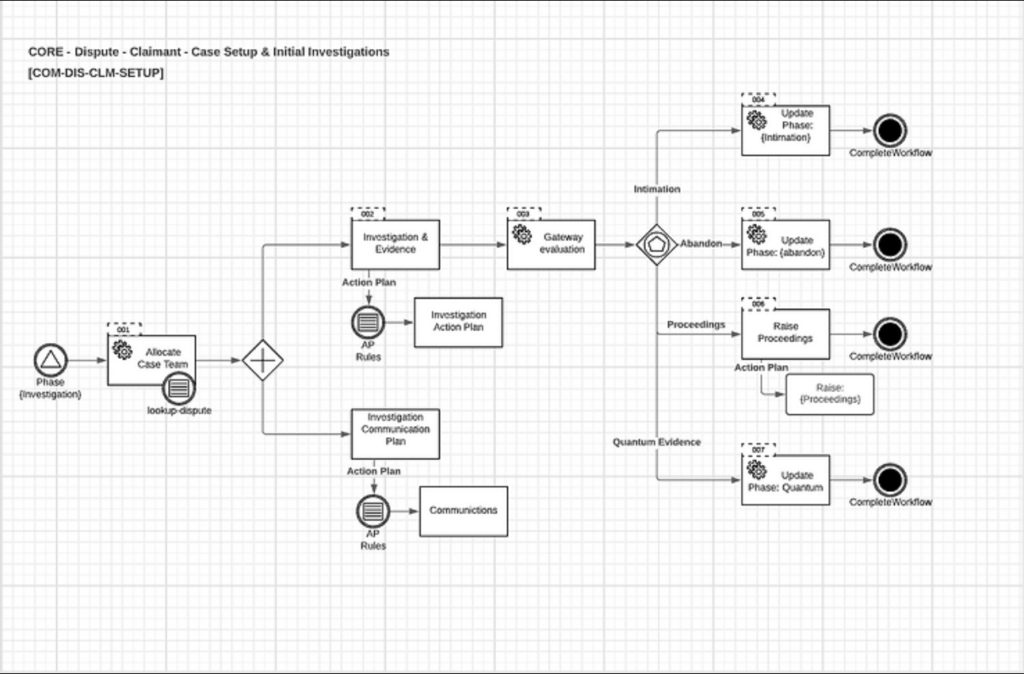
3. Choose the right work style for your practice
Case management systems by specialists like ShareDo are ultimately designed to deliver process improvements through differing levels of automation. This ranges from something as as simple as automating precedents or as sophisticated as ‘straight through processing’ that requires no manual intervention whatsoever.
One of the key factors for a successful implementation is getting the level of automation just right for an individual practice group. Too much automation or workflow, when it’s not required by a practice area, will only frustrate and alienate users. Too little automation for more volume-driven practice groups and you’ll get the same outcome!
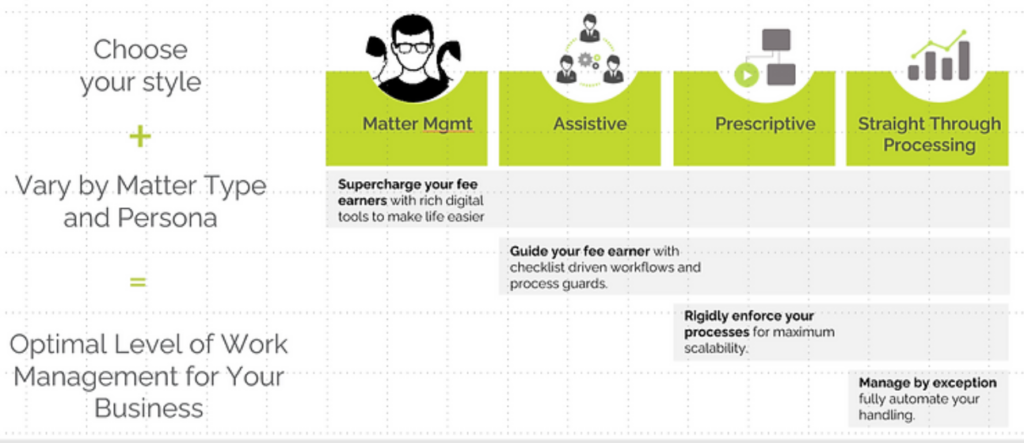
4. Accelerate adoption by incorporating best practice
Ultimately, this is about incorporating what’s worked well in the past and avoiding reinventing the wheel. All too often, transformation projects assume that everything must go through the transformation mill.
The majority of processes adopted across most law firms for a given Practice Group are very similar. Firms all follow similar processes for Litigation, Real Estate, Commercial and the like. This presents the opportunity to accelerate the delivery of these ‘core workflow’ spines by reusing common process, enabling you to focus on the truly value-added processes and differentiate your service with your clients.
At ShareDo, we deliver this common experience in the form of Solution Accelerators.
Each accelerator contains both a business analysis toolkit (including processing models and supporting documents) together with out of the box solution configuration (work types, workflows and personas). Solution Accelerators enable you to engage more quickly in workshops together with configuration artifacts that enable you to implement quicker. By doing this, your implementations are not ‘reinventing the wheel’, but instead are iterating quickly against a best practice baseline.
5. Create a structured implementation process
The adoption of the Agile project management methodology by the entire software industry has led, in our opinion, to important established best practice often being left behind. Agile doesn’t mean no documentation or no upfront design. Instead, it advocates an appropriate level of these vital tools.
In addition, ‘low code’ platforms often encourage a constant state of ‘tinkering’ with system configuration. These can prove harmful, with implementations lacking strategic direction and taking too long to stabilise.
As part of any CMS implementation, we recommend investing in a considerable upfront design phase. Sharedo describe this as the ‘definition phase’, which includes:
- Process mapping of workflows – these facilitate conversation with stakeholders and forces the thought process to ensure workflows are workable and gives clear, testable outputs for completed workflow.
- High level design document – describing the overall scope of the initiative, this bible is laser-focused on what an MVP should be and ensures strong stakeholder buy-in to the end solution.
6. Build an agile, multi-disciplinary team
You will require a variety of disciplines to successfully implement a CMS or Legal Operational Management system. Our clients enjoy the greatest level of success when the following roles are fully involved in the process.
- Change Champion or Business Partner – the Change Champion is actively working with Practice Groups to build business cases for incremental process improvement and manage these improvements into the business. This role could be part of a wider Six Sigma style initiate.
- Lead Configurator / Business Analyst – solutions such as ShareDo are designed to enable Business Analysts to quickly translate requirements into working solutions. The ideal person here can not only “speak the legal language” of a particular practice group, but can also translate and configure as well. Within our organisation we see this as the most critical role on the project. This individual tends to be the most experienced people in the team.
- Document Automation Specialists – most, if not all, legal process improvement initiatives will involve significant levels of document automation. Getting automation right is essential and should not be overlooked as a dedicated role.
While the above roles are considered as the ‘core three’ on any winning implementation, larger initiatives will add further dedicated roles into the mix.
- Workflow Developers – in a similar way to Document Automation, where there is significant demand for workflow automation across the firm, we recommend this becomes a specialist role. This frees up the Business Analysts to focus on mapping process, while enabling the Workflow Developer to focus on creating reusable and consistent workflows.
- Quality Assurance – across most of our initiatives we see the quality role being fulfilled by the above core team. However, for large initiatives there are significant benefits to specialising this role. Not only does it allow you to cover the more scale but comes with the added benefit of not ‘marking your own homework’.
7. Craft the right data migration strategy
Run off files from previous system or don’t migrate any data
Migrate all case data
Migrate core case data and add the rest as unstructured
A common cost/benefit trade-off to address the complexity of migrating all case data is to only migrate the data required for day one processing, e.g. case status and milestones information. The remaining information, such as file notes or comments, can be migrated as a follow-up stage. We recommend that administrative support is provided to necessitate your case handlers “setting up” each file when they arrive to this task.
Conclusion
We’re not going to fabricate reality and say that implementing case management systems is easy. Step changes that can truly transform your business for the long-term take time and effort to get right. Like any other core operational system, your new CMS will touch the majority of processes in your firm and, if done correctly, will be the catalyst to re-energise and propel your performance to the next level.
However, with this impact comes a significant amount of change. Change that needs to be managed carefully.
Our Professional Services team’s day job is implementing Case and Matter Management Systems for Enterprise Legal Service Providers. They’re a friendly and smart bunch, so if you need some advice or even a “virtual” cup of tea then feel free to reach out!



